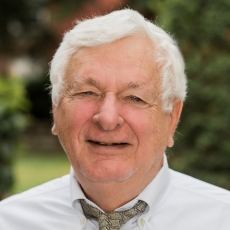
Courts should continue to apply canons of construction narrowly to limit the broad congressional delegation of power.
In their forthcoming article, “Delegation and Time,” Jonathan Adler and Chris Walker introduce an important new way of thinking about broad congressional delegations of power. After reviewing the traditional arguments against broad congressional delegations of power, they note that broad delegations increasingly raise a serious temporal problem.
In their words, “broad congressional delegations of authority at one time period become a source of authority for agencies to take action at a later time that was wholly unanticipated by the enacting Congress or could no longer receive legislative support.” They also note that this temporality problem “has taken on added significance in the current era of congressional inaction.”
Adler and Walker illustrate this temporality problem well by referring both to the efforts of the Federal Communications Commission to use the Communications Act of 1934 to regulate the internet and to the efforts of the Environmental Protection Agency to use the Clean Air Act of 1970 to mitigate climate change.
I agree with the concerns that Adler and Walker express. I would expand them, however, to include broad congressional delegations of power to the president that are being applied in ways that Congress never contemplated then and would not support today. President Donald Trump has relied on the Trade Expansion Act of 1962 as the basis for his imposition of massive tariffs as part of his trade war against many of our trading partners. He has relied on the Emergencies Act of 1976 to reallocate funds from other uses to construction of the border wall that the U.S. Congress has consistently refused to fund. Both of those congressional grants of power have no apparent limit.
The U.S. Supreme Court recently rejected challenges to the validity of President Trump’s use of both of those powers. President Trump responded to the apparent green light from the Court by claiming he possesses the power to command U.S. companies to cease doing business in China.
Immediately after the Court refused to consider a challenge to the president’s use of the Emergencies Act to fund the border wall, U.S. Senator Bernie Sanders (I-Vt.), one of the Democratic candidates for president, announced that, if elected, he would invoke the Emergencies Act as the basis for spending trillions of dollars and imposing draconian limits on the use of cars and trucks in an effort to mitigate climate change.
Adler and Walker urge Congress to respond to the temporality problem created by broad congressional grants of power by encouraging it more frequently to revise statutes that delegate power. I agree, but that cannot happen in today’s political conditions. Congress has become impotent. It has virtually no power to enact or even renew legislation.
In most circumstances, legislation requires bipartisan compromise. But today, most members of the House of Representative and Senate are unwilling to compromise for fear of being “primaried.” The vast majority of the members of both Houses are in “safe” states or districts. As a result, the only threat to their re-election is a primary.
Primaries are low turnout elections that favor extremists. Republicans who move to the center to compromise expose themselves to a potential loss in a primary to candidates farther to the right. Democrats who move to the center to compromise expose themselves to a potential loss in a primary to candidate farther on the left. The only safe option for most members of the House and Senate is to take positions on either the far right or the far left—and never to compromise.
Congress cannot restore its capacity to legislate unless the nation stops using primaries to choose candidates and returns to the peer-based systems for selecting candidates that the country used until the Progressive Era and that virtually all other democracies continue to use.
To reinforce their proposal for more frequent congressional reauthorization of legislation, Adler and Walker urge Congress to include sunset provisions in statutes that confer broad power on agencies. In their view, including a sunset provision in such statutes would change congressional incentives in ways that would induce Congress to re-evaluate the powers granted through such statutes and revise those laws in ways that both update and reduce the degree of discretion they give the agency to interpret statutory provisions in ways that Congress did not intend.
Adler and Walker argue that the inclusion of sunset provisions would address effectively both the political legitimacy and the temporality problems that are created by broad congressional grants of power to agencies. They refer to environmental regulation and immigration as contexts in which it would be particularly desirable to give Congress the incentive to re-evaluate and revise broad statutory grants of power by making them temporary.
I disagree with Adler and Walker on that point. I do not believe that adding sunset provisions to statutes that grant broad power to agencies would provide incentives sufficient enough to induce Congress to reconsider and revise those statutes. Congress lacks all realistic capability to take those actions. In most circumstances, congressional impotence would create a situation in which broad grants of power to agencies expire and are not replaced with any statute that fills the resulting void in federal power to address important issues such as air quality, climate change, immigration, or regulation of the internet.
Although I agree with Adler and Walker that the United States suffers a large and growing problem of excessive delegation to agencies, I disagree with their solution. I would argue instead that courts should continue to apply cannons of construction to narrow the discretion conferred by broad delegations of power to agencies, reduce the degree of deference they confer on agencies, increase the vigor with which they apply the arbitrary and capricious test, and increase their receptivity to arguments that some statutes delegate so much seemingly boundless power to executive officials that they violate the non-delegation doctrine.
This essay is part of a seven-part series, entitled Reinvigorating Congressional Reauthorization.




